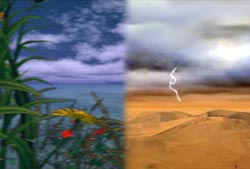Study: Europe's Glaciers Could Disappear this Century

Get the world’s most fascinating discoveries delivered straight to your inbox.
You are now subscribed
Your newsletter sign-up was successful
Want to add more newsletters?

Delivered Daily
Daily Newsletter
Sign up for the latest discoveries, groundbreaking research and fascinating breakthroughs that impact you and the wider world direct to your inbox.

Once a week
Life's Little Mysteries
Feed your curiosity with an exclusive mystery every week, solved with science and delivered direct to your inbox before it's seen anywhere else.

Once a week
How It Works
Sign up to our free science & technology newsletter for your weekly fix of fascinating articles, quick quizzes, amazing images, and more

Delivered daily
Space.com Newsletter
Breaking space news, the latest updates on rocket launches, skywatching events and more!

Once a month
Watch This Space
Sign up to our monthly entertainment newsletter to keep up with all our coverage of the latest sci-fi and space movies, tv shows, games and books.

Once a week
Night Sky This Week
Discover this week's must-see night sky events, moon phases, and stunning astrophotos. Sign up for our skywatching newsletter and explore the universe with us!
Join the club
Get full access to premium articles, exclusive features and a growing list of member rewards.
From 1850 to the 1970s, glaciers in the European Alps lost about 35 percent of their area. The melting then sped up, and now the 5,150 glaciers cover about 50 percent of the area they did in 1850.
By the end of this century, they could be nearly gone, according to a new computer model.
The projection, from scientists at the University of Zurich in Switzerland. will be published July 15 in Geophysical Research Letters, a journal of the American Geophysical Union.
It indicates that if summer air temperatures rise by 5 degrees Fahrenheit (3 Celsius) by the end of the century, 80 percent of the glacier cover will be gone. If summer temperatures were to increase by 9 degrees Fahrenheit (5 Celsius), the Alps would become almost completely ice-free by 2100.
The forecast is based on temperature projections from the Intergovernmental Panel on Climate Change (IPCC), which has stated that an increase in summer air temperatures of 2 to 9 degrees Fahrenheit (1 to 5 Celsius) is plausible.
"Our study shows that under such scenarios, the majority of Alpine glaciers might disappear within the coming decades," said glaciologist Michael Zemp, lead author of the new study.
The scenario is similar elsewhere.
Get the world’s most fascinating discoveries delivered straight to your inbox.
Recent research at Glacier National Park in Montana found 26 named glaciers today, down from 150 in 1850.
The Controversy
- Global Warming Differences Resolved
- Conflicting Claims on Global Warming and Why It's All Moot
- Baffled Scientists Say Less Sunlight Reaching Earth
- Scientists Clueless over Sun's Effect on Earth
- Greenhouse Gas Hits Record High
- Key Argument for Global Warming Critics Evaporates
The Effects
- Seas Rise
- More Wildfires
- Deserts to Grow
- Greenland Melts
- Ground Collapses
- Glaciers Disappear
- Allergies Get Worse
- Animal DNA Changing
- Animals Change Behavior
- Rivers Melt Sooner in Spring
- Increased Plant Production
- Hurricanes Get Stronger
- Lakes Disappear
Hot Topic
What makes Earth habitable? This LiveScience original video explores the science of global warming and explains how, for now, conditions here are just right.
 Live Science Plus
Live Science Plus












